Training Materials
STEM Best Practices Adoption Workshops with Program Country Institutions Completed
Under the WP3 – STEM Capacity Building initiative, following the Advanced Training sessions held from October 2023 to January 2024, partner institutions in Kosovo and Albania have organized a series of follow-up workshops. These workshops aimed to share best practices from LNU and NUIM with academic and administrative staff involved in STEM education.



The workshops, conducted by trained staff from the Advanced Trainings, focused on three key dimensions:
- STEM, Inclusiveness, and Diversity
- STEM, Digital Skills
- Digital Citizenship, STEM Engagement, and Sustainability



Held between March and May 2024, twelve workshops took place across RIT Kosovo, IBC-M, UET, and POLIS. These sessions are part of the STEM for ALL STEFORA Project’s Work Package 3 (WP3) and are crucial for transferring knowledge and expertise from EU partners to institutions in Kosovo and Albania.



The primary objectives were:
- To transfer knowledge and expertise from the Advanced Training activities to local institutions.
- To equip staff with the necessary pedagogical techniques and administrative skills for inclusive STEM education.
- To empower staff to critically reflect on and improve their teaching and administrative practices.



These workshops represent a significant step towards strengthening STEM education and creating inclusive learning environments in Kosovo and Albania.
Webinar 3: STEM, Gender, and Social Inclusion: A Transformative Approach
The third webinar on STEM, Gender, and Social Inclusion: A Transformative Approach marked the conclusion of the Expert Webinar series. This webinar was held on March 7, 2024, and was hosted by IBC-M. The speakers in the webinar were Jelena Djokic and Bujar Gallopeni, accomplished academics from IBC-M, who delved into topics including STEM education, professional opportunities, gender dynamics, and social inclusion. While Dr Djokic presented and discussed the gender transformative approaches and the role of STEM, Dr Gallopeni reviewed STEM education and initiatives aimed at fostering increased participation of women in the Kosovo context.
The conclusive webinar session signifies a new phase in our mission. This entails the advancement of initiatives dedicated to fostering inclusivity and diversity and amplifying the voices of women in STEM.




Webinar 2: STEM Engagement of Women Through Group Activity
On February 28th, 2024, Webinar 2 took place on the topic: STEM engagement of women through group activity. The webinar was organized by the European University of Tirana and it focused on the representation of women in STEM in Albania. The webinar was conducted by Ms.Orkieda Xhaferaj, founder of the Network of Albanian Women in STEM/SCiDEV, who talked about the gap in representation, stereotypes, and inequalities of women in STEM. Through engaging discussions and group work activities, the webinar participants highlighted the critical importance of the representation of women as well as advancing women’s voices and contributions in the STEM fields. The group presentations highlighted how the family, schools, government, and civil society play crucial roles in enhancing women’s confidence, ultimately contributing to their empowerment The webinar underscored the need for systemic change to break down barriers, challenge stereotypes, and create pathways for equal opportunity and representation.



Training 3: Digital Citizenship Training for STEM Faculty and Administrators
The Digital Citizenship training for STEM faculty and administrators kicked off at Maynooth University in Kildare County, Ireland, with participants from four partner institutions from Kosovo and Albania, as well as the project partner institution – Linnaeus University in Sweden, attending both in-person and online sessions.
The training covered topics such as Digital Citizenship, Digital Safety and Higher Education Institutions, Security Awareness, Digital Literacy, and Responsible Online Behavior.




On the second day, the focus was on the ‘Professional Digital Footprint’ principle of Digital Citizenship, with case study presentations from the ‘Equality, Diversity and Inclusion’ Department at MU, an EU-wide ‘Women in STEM’ foundation, and an in-house student-led initiative called Women in STEM Society. During the day, in-person participants had the opportunity to visit the Russell Library, which houses significant collections, manuscripts, and archival holdings dating back to 1751.




On the third and concluding day, partner institutions from Kosovo and Albania presented their draft Standard Operating Procedures (SOPs) covering topics such as Responsible Digital Behavior, Social Media Conduct, Data Security, Online Bullying, and Breaches of Online Behavior. Through these new SOPs, the beneficiary institutions will support the creation of their new institutional STEM services and setting in place their digital ecosystems.





Expert Webinar Series Kicks Off with Webinar 1: Women in STEM
As part of Work Package 3 activities, the webinar ‘’Women in STEM’’ organized by RIT Kosovo, was a compelling exploration of the challenges faced by women working as engineers.
The webinar featured prominent speakers who are accomplished academics and professionals in the field of Engineering, Mary Doyle-Kent from South East Technological University (SETU) Ireland and Ines Bula Bunjaku, from RIT Kosovo. In their presentation, the speakers shared their research findings on the experiences of women in Engineering in Kosovo and Ireland.
The webinar highlighted on the themes of diversity and inclusion, addressing the unique challenges encountered by women in the fields of Engineering and STEM. Key insights were drawn from the topics on workplace equality, job satisfaction disparities, work-family life balance, maternity leave concerns, and promotion of engineering for women.






The Women in STEM webinar provided a platform for insightful discussions about the unique challenges faced by women engineers in Kosovo and Ireland. This webinar marked the initiation of a series comprising three successive webinar events. As part of the ongoing webinar series, future webinars promise to cover an array of topics about diversity and inclusion in STEM education featuring experts from various disciplines. The goal is to establish a robust platform for knowledge dissemination, networking, and discussions.
Internal Meeting to Strategize for Training 3 on STEM and Digital Citizenship, to be held in Maynooth University Ireland
On December 1, 2023, the project partners from Maynooth University and RIT Kosovo gathered in a virtual meeting to meticulously plan and discuss the details surrounding the Training event to be held in January 24-27, 2024 in Maynooth University. Representatives of the Maynooth University and RIT Kosovo engaged in detailed discussions covering logistical arrangements, participant engagement strategies, and the development of a carefully tailored training curriculum for Faculty and Administrators. The partners emphasized the importance of a seamless and enriching experience for all the participants.
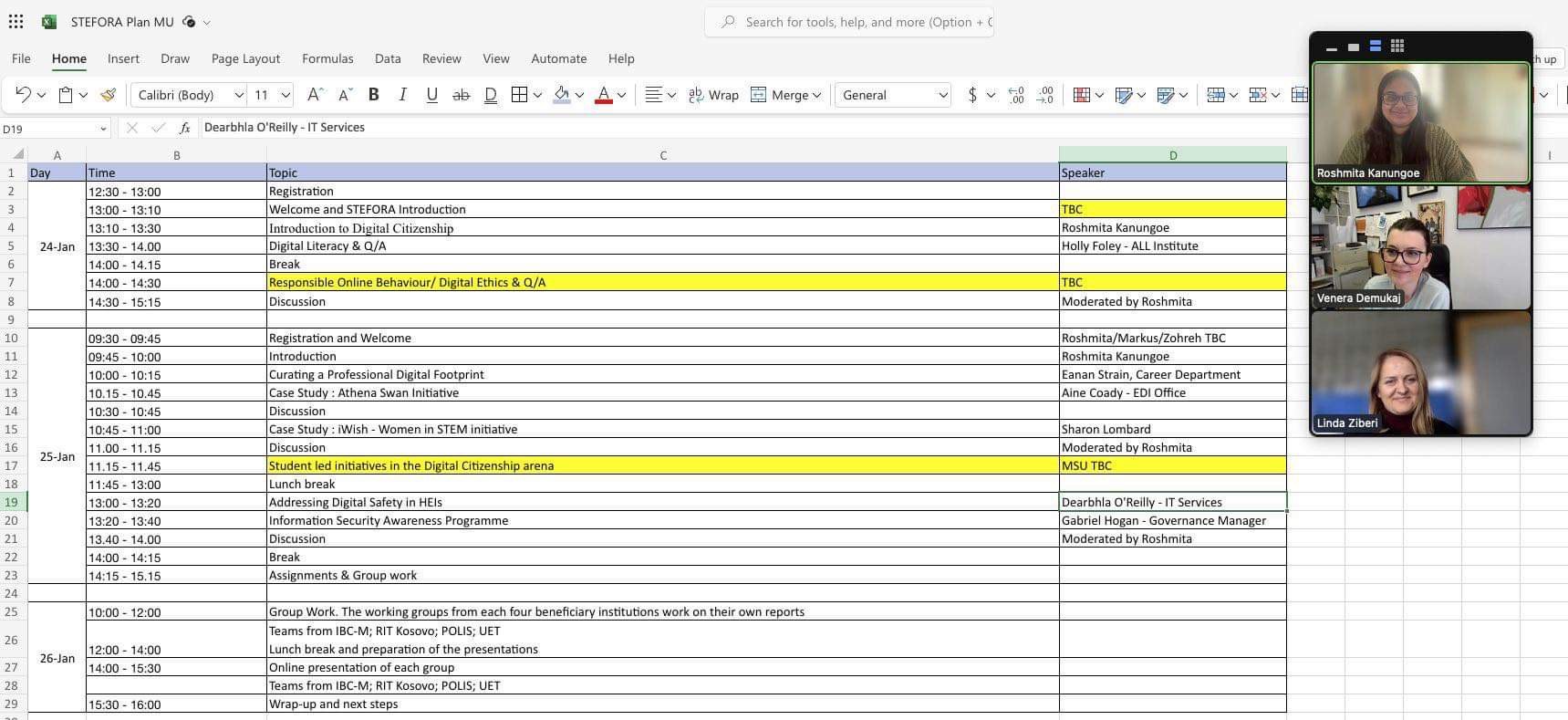
Training 2: Universal Design Training for STEM Faculty and Administrators
In continuation of the Advanced Training events, on November 6-8 at Polis University, Linnaeus University led the Universal Design Training for STEM Faculty and Administrators.
Day one focused on the introduction to principles of universal design and women inclusion.
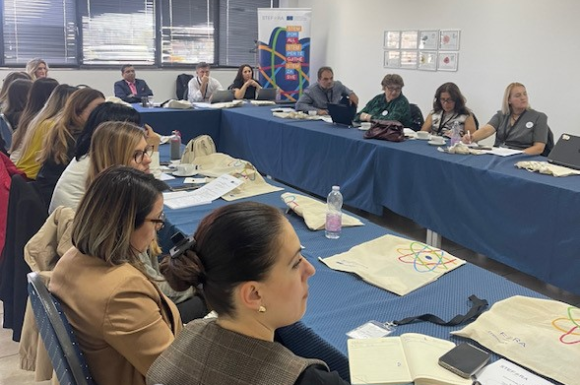

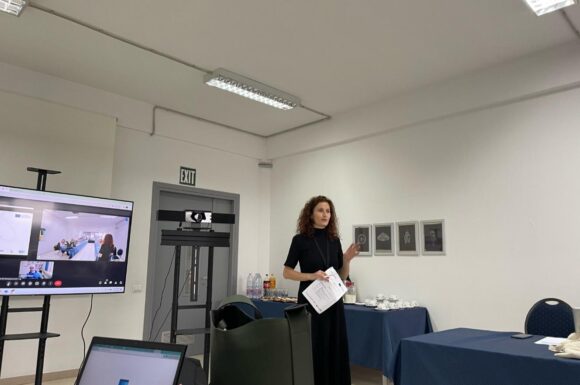
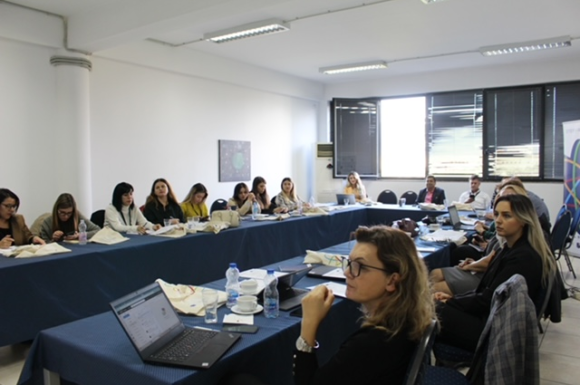
In the second day, the participants were introduced to the context of Kosovo and Albania and the Design Thinking Approach to address Universal Design aspects within STEM. In the second part of the day, following the Design Thinking approach, participants collaboratively worked on groups to redesign an idea through all the design thinking stages; followed by a presentation and discussion from each group.







On day 3, the working groups from each of the four beneficiary institutions (IBC-M, RIT Kosovo, POLIS and UET), worked on their own reports (that is, their redesign work following the Design Thinking approach) and then presented them online. The strategies for Implementing Universal Design Principles to Achieve Gender Inclusive STEM Education were discussed among participants.




By implementing universal design principles and innovative strategies, institutions are not only breaking down barriers but also paving the way for a more diverse and dynamic future in STEM fields, as well as making STEM education accessible and empowering for all.
Training 1: Inclusive Pedagogy Training for STEM Faculty
As part of WP3 activities, the Advanced Training on Inclusive Pedagogy for STEM Faculty was held on 30 October – 1 November at IBC-M in Mitrovica and was led by Linnaeus University.
In the first day, the participants were introduced to the norm critical approaches and prevalence of social norms in Kosovo and Albania contexts.
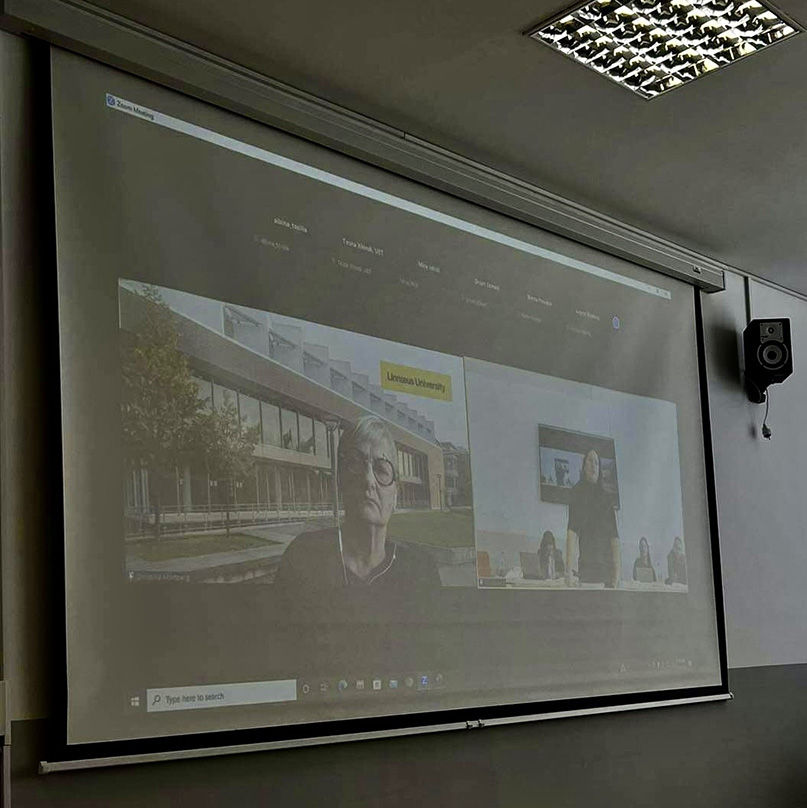

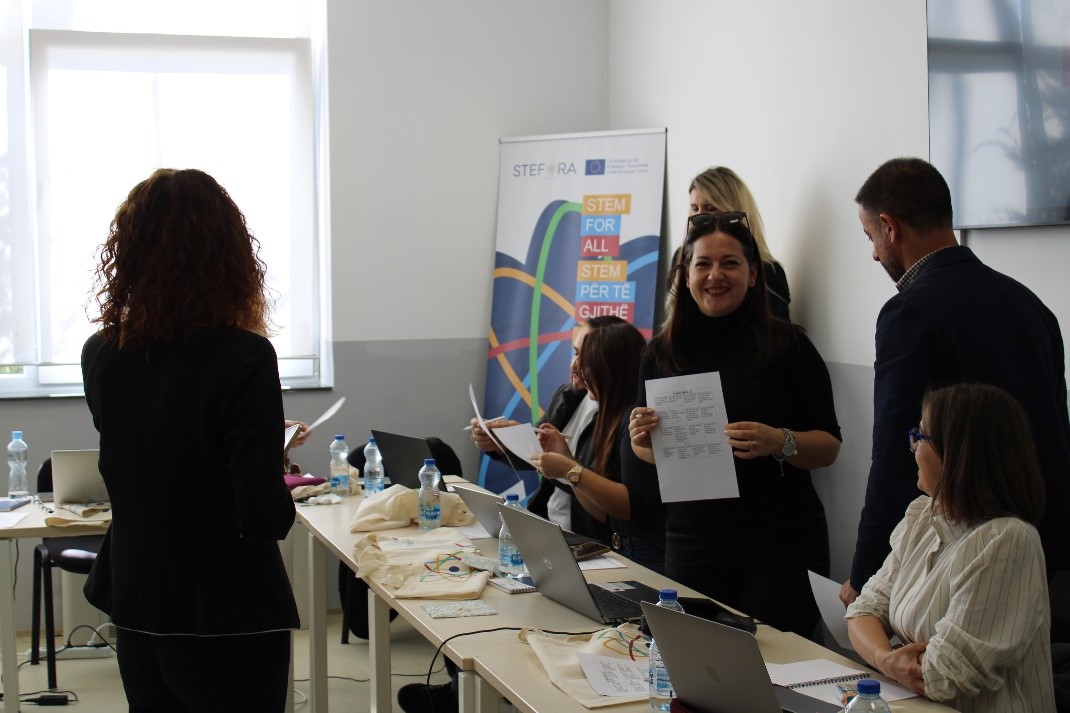
Day two activities focused on how to integrate critical approaches into STEM classes. In the first part of the day, the participants reviewed case studies in the areas of engineering, environment, and science and then reflected and discussed them among groups. In the second part of the day, the activities focused on the examples and guidelines of designing inclusive pedagogy.
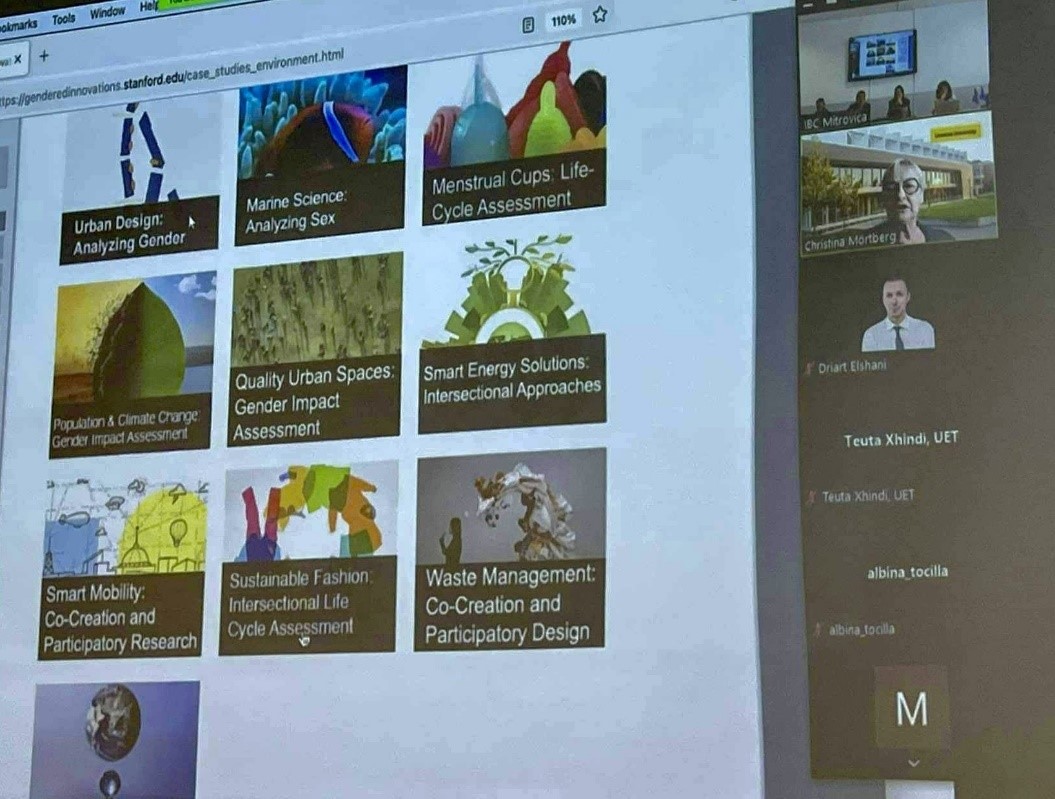
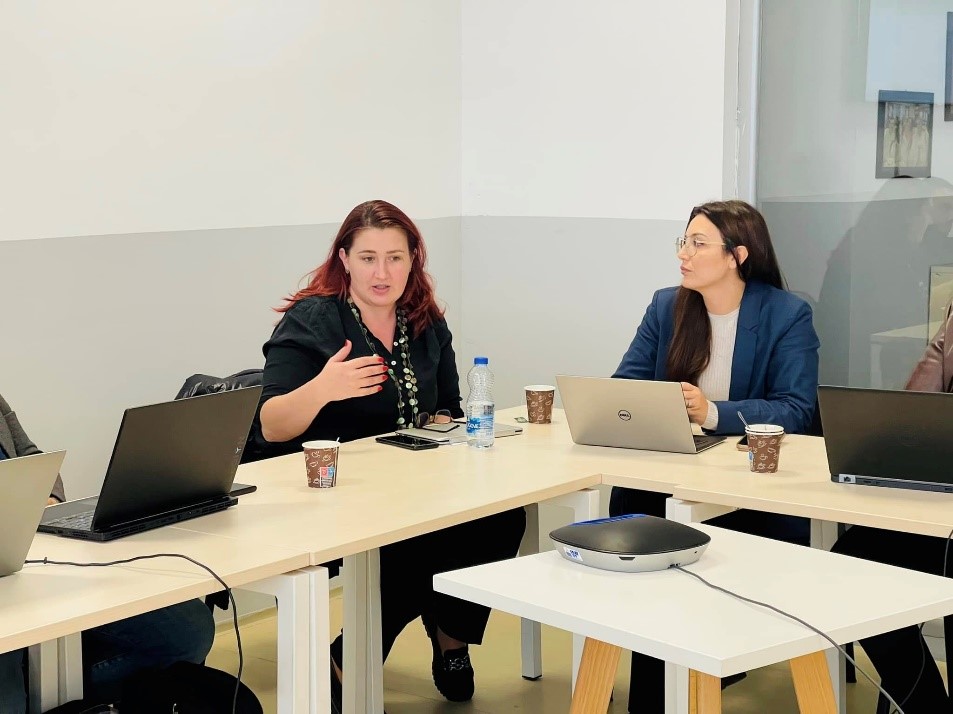
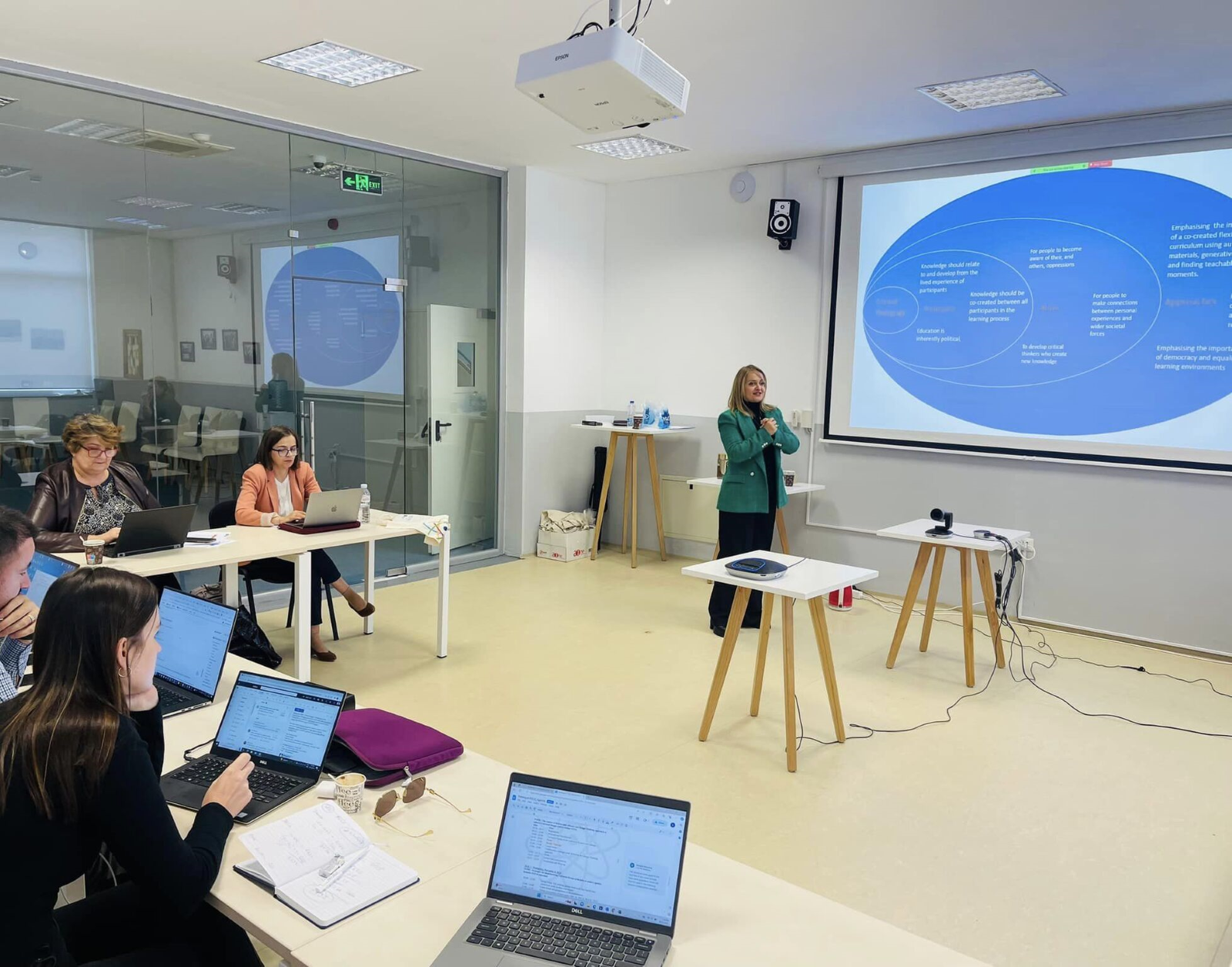
In day three, participants worked into four groups; reviewed their assignments, syllabi, and course materials; and presented and discussed on how to re-design their classes using the lenses of norm critical approach.
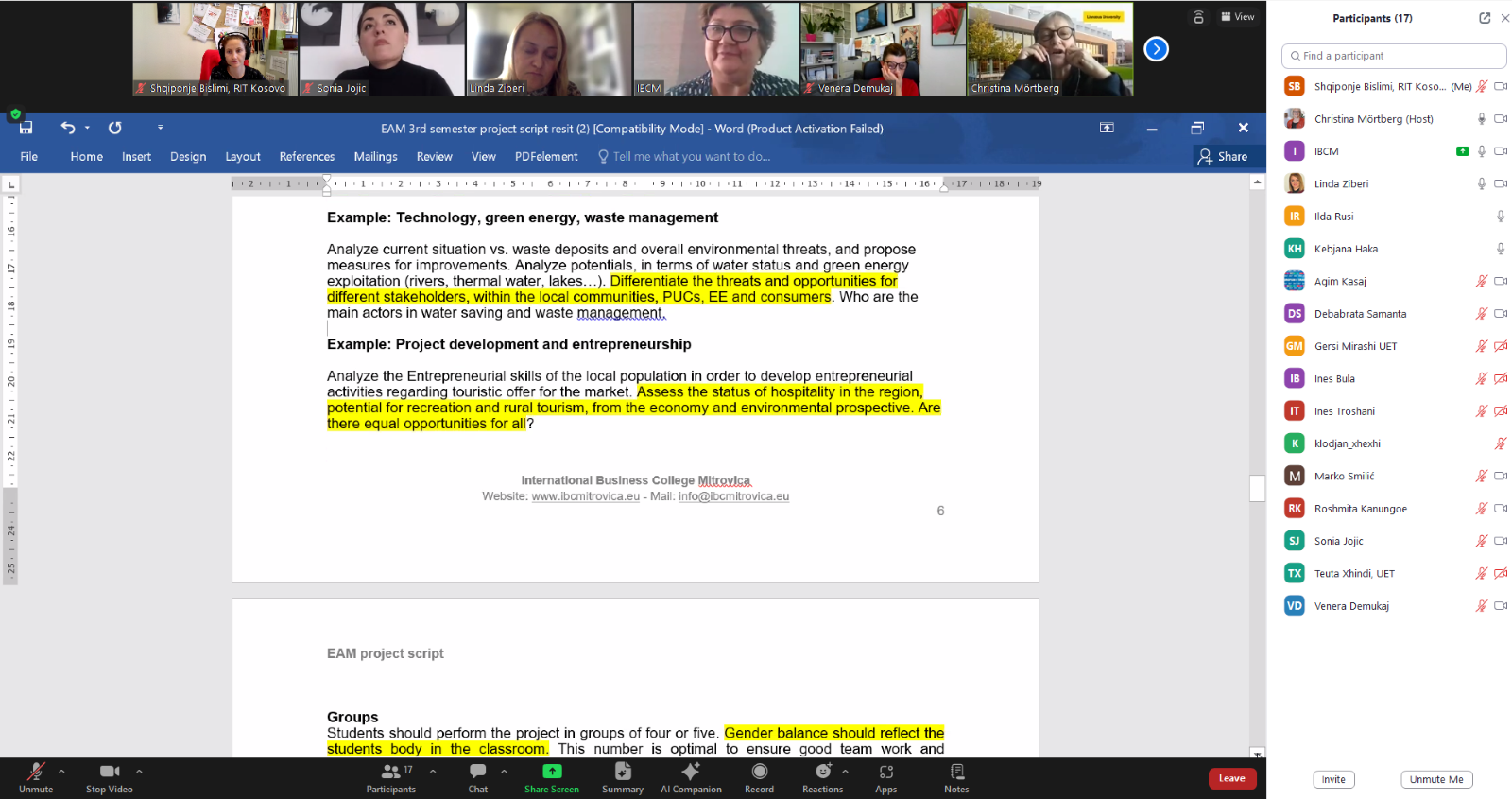
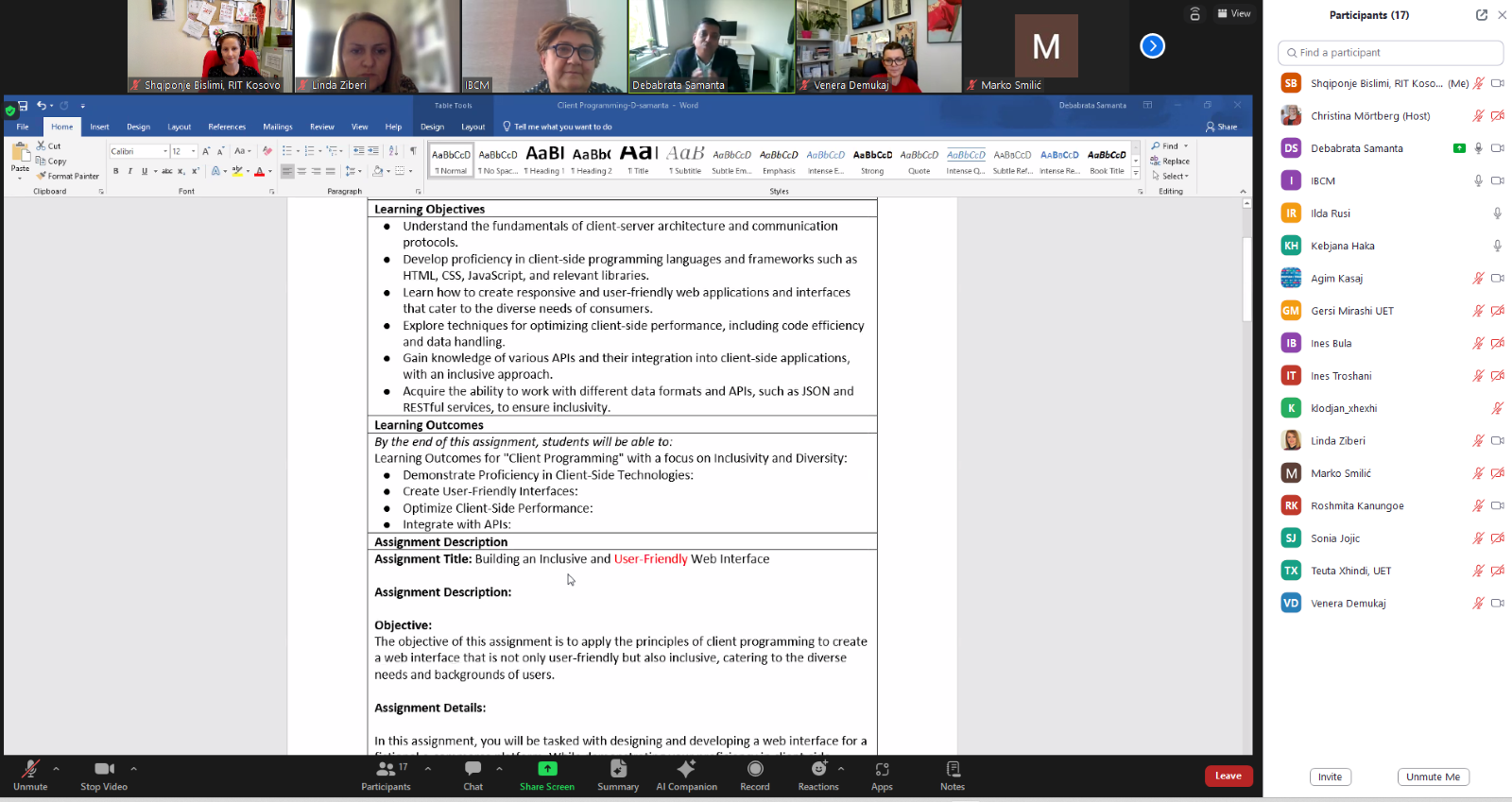
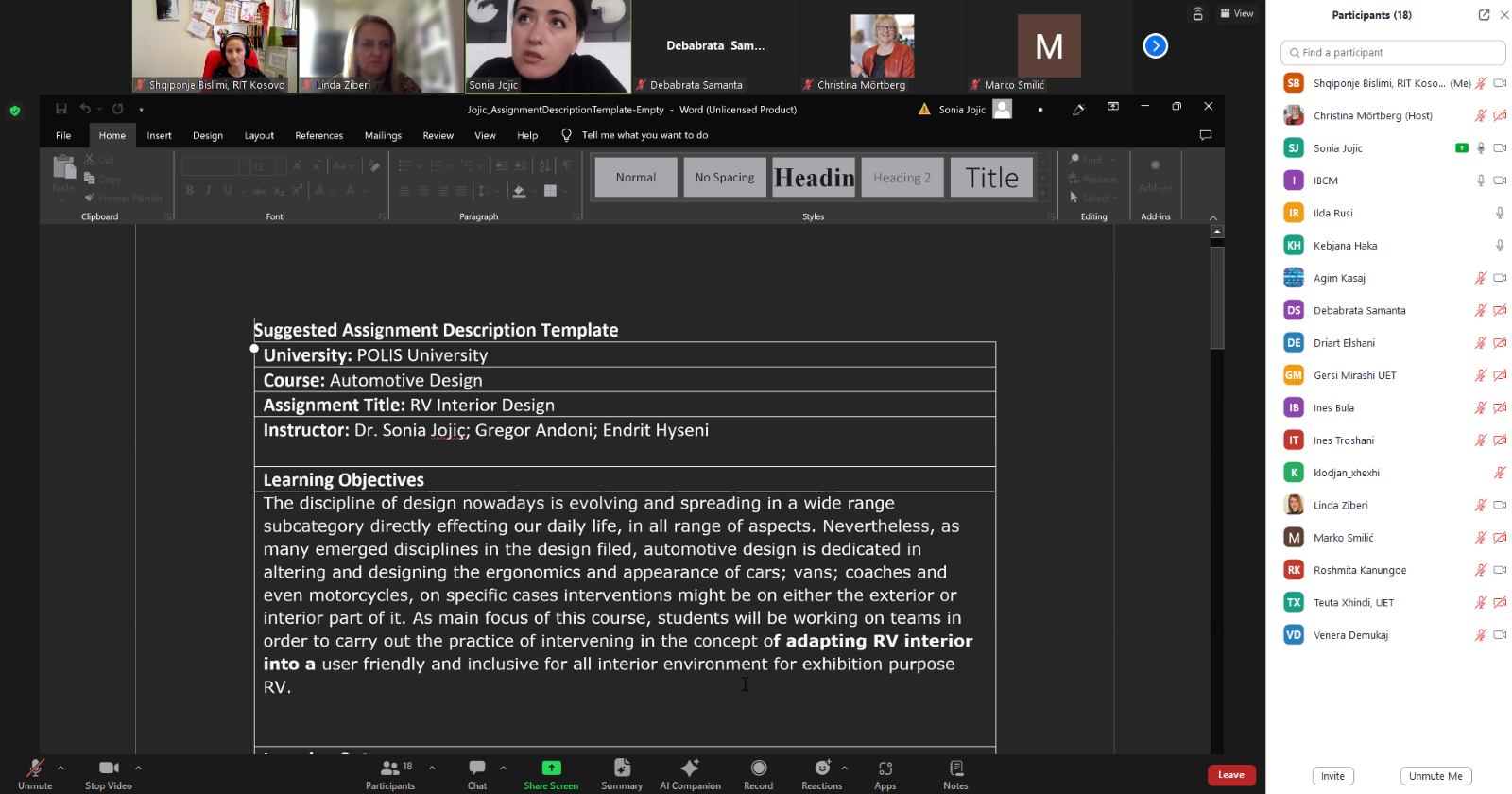
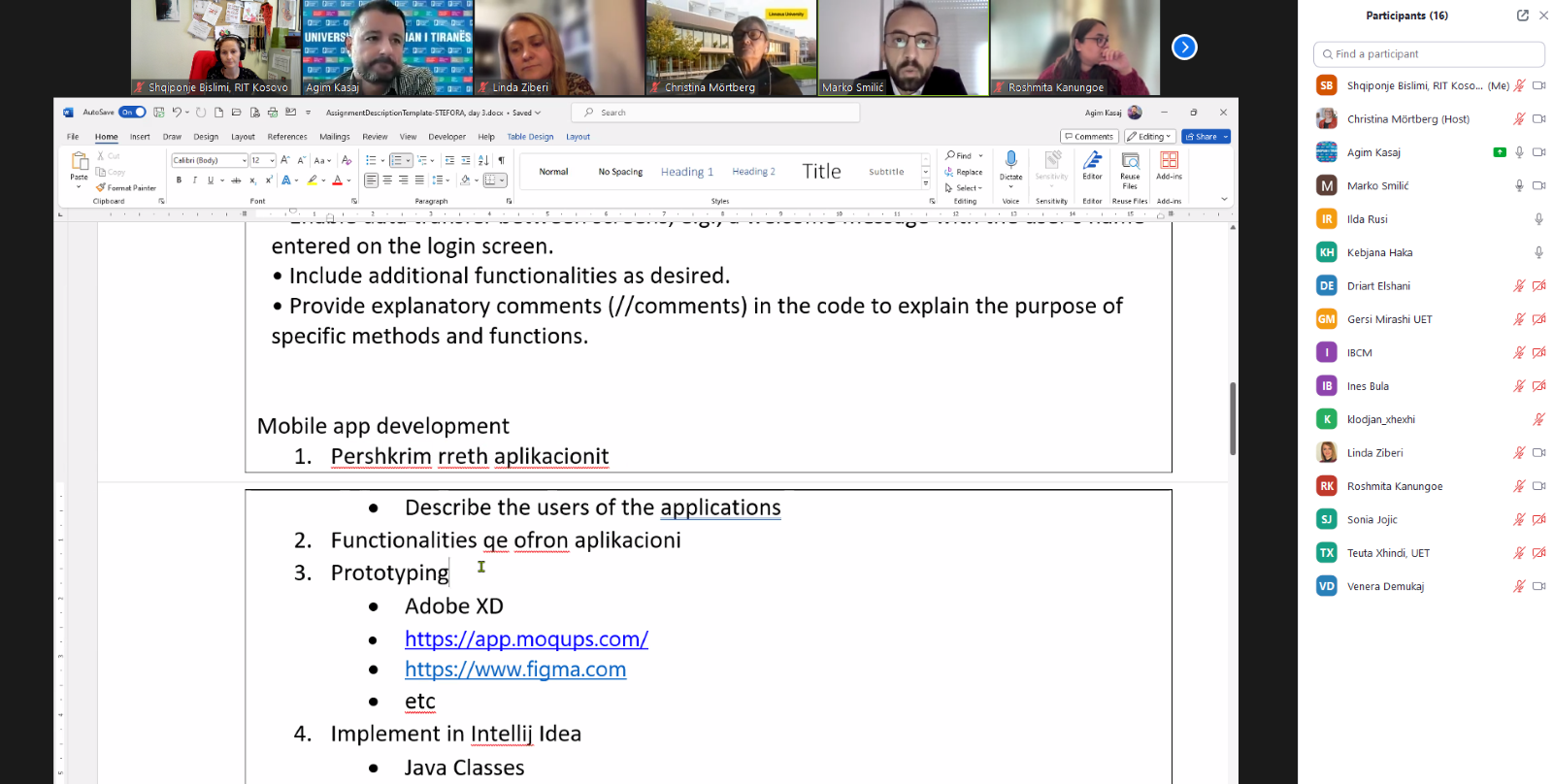
This was a Training for the Trainers event which equipped the STEM faculty with the knowledge and skills needed to train academic staff in their respective institution more effectively on inclusion on norm critical approaches in STEM education.


